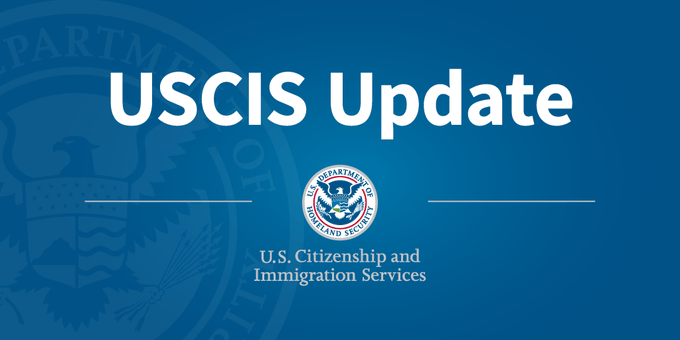Beginning as of Saturday January 22, 2022, the Department of Homeland Security will require that individuals, who are not U.S. citizens, permanent residents (green card holders) or U.S. Nationals, must show proof of being fully vaccinated against COVID-19 when they enter the United States.
Secretary of the Department of Homeland Security Alejandro N. Mayorkas stated “These updated travel requirements reflect the Biden-Harris Administration’s commitment to protecting public health while safely facilitating the cross-border trade and travel that is critical to our economy.”
According to the United States Citizenship and Immigration Services’ (USCIS) website, non-U.S. individuals traveling to the United States utilizing land ports of entry or ferry terminals for essential or non-essential reasons must to do the following to gain entrance to the United States:
- verbally attest to their COVID-19 vaccination status;
- provide proof of a CDC-approved COVID-19 vaccination, as outlined on the CDC website: https://www.cdc.gov/coronavirus/2019-ncov/travelers/index.html
- present a valid Western Hemisphere Travel Initiative (WHTI)-compliant document, such as a valid passport, Trusted Traveler Program card, or Enhanced Tribal Card; and,
- be prepared to present any other relevant documents requested by a U.S. Customs and Border Protection (CBP) officer during a border inspection.
Refusing any required immigration vaccination (including the vaccine panel for Covid-19) is a ground for inadmissibility to the U.S. This inadmissibility would be generally applied to individuals for any type of entry to the U.S. (visitor, employment, adjustment of status, etc.) An individual who is found inadmissible to the U.S. usually must apply for a waiver to obtain entry to the United States.
The process of obtaining a waiver requires very concrete evidence of the reason why the vaccine was refused by the individual seeking the waiver. “Moral conviction” may be used as a reason to seek a waiver of inadmissibility. The USCIS guidance on the requirements for filing a waiver of inadmissibility due to opposition to vaccinations based upon a “moral conviction” is as follows:
“The applicant must be opposed to all vaccinations in any form.
The applicant has to demonstrate that he or she opposes vaccinations in all forms; the applicant cannot “pick and choose” between the vaccinations. The fact that the applicant has received certain vaccinations but not others is not automatic grounds for the denial of a waiver. Instead, the officer should consider the reasons provided for having received those vaccines…
It is necessary to distinguish between strong religious beliefs or moral convictions and mere preference. Religious beliefs or moral convictions are generally defined by their ability to cause an adherent to categorically disregard self-interest in favor of religious or moral tenets. The applicant has the burden of establishing a strong objection to vaccinations that is based on religious beliefs or moral convictions, as opposed to a mere preference against vaccinations. “
The burden of proof that must be provided by someone to obtain a waiver of admissibility based upon refusal of the COVID-19 vaccine is quite high. Additionally, even if an individual is able to gather the evidence necessary to qualify for a waiver of inadmissibility for refusing the COVID-19 vaccine, the waiting period to obtain such a waiver is uncertain. Some waivers for inadmissibility can take a year or more to adjudicate.
Though vaccine requirements can change over time, non-U.S. entrants must adhere to the current U.S. rules of entry to enter the United States. As we reach toward increased cross-border travel, we wish you all a safe and well-prepared journey to reach your desired destination!
Erin Bahn, Partner focusing on Immigration Law
